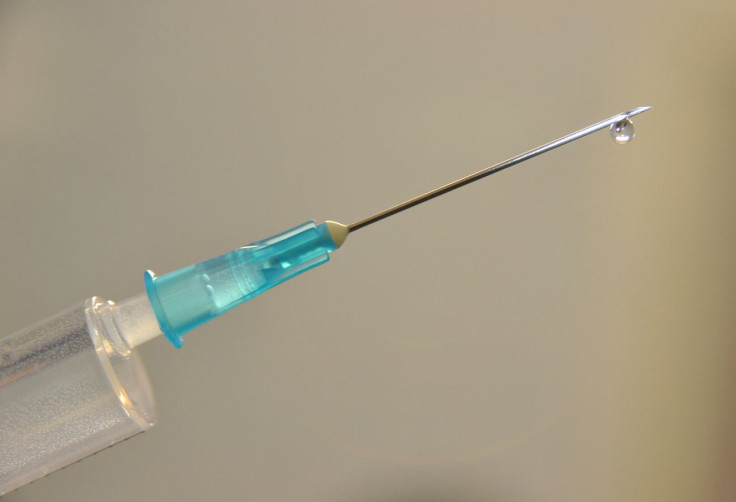Monthly Injections Instead Of Daily Pills For HIV Treatment Show Promise In Early Trials

Typical modern treatments for HIV infection include taking a daily pill to prevent the virus from proliferating and destroying the immune system. But what if a once-monthly injection could take the place of daily pills and decrease the chance of a missed dose? Early stage clinical trials by GlaxoSmithKline and Johnson & Johnson have shown such an injection to be safe and effective at keeping drug levels high in the body long after the injection.
The clinical trial was run by both companies and used two drugs that block HIV production, one which is already approved and sold as Edurant and the other, GSK744, is awaiting FDA approval this summer. The trial enrolled 40 healthy patients, who did not have HIV infection, to assess the safety of the drugs.
The subjects were first given oral doses of the medications for two weeks before the injections of the long-lasting shot. Monthly injections showed that even four months after a series of monthly injections, the participants still had high levels of the HIV-blocking medication in their systems at a threshold that would normally block the virus in HIV-infected patients. Another group in the study received two injections of the medication three months apart and also showed safety and high levels of the drugs in their systems.
The results were presented today at the International AIDS Society's annual meeting in Kuala Lumpur.
Like the maintenance of many diseases, such as heart disease and diabetes, HIV patients must adhere strictly to their mediation, or risk the virus mutating to become resistant to the medication. In a recent publication that surveyed 400 HIV infected patients, 84 percent said that they would probably or definitely try a monthly injectable therapy.
The new treatments are making use of nanotechnology to prolong the bioavailability of the drugs in patients for far longer than in regular medications.
Published by Medicaldaily.com



























